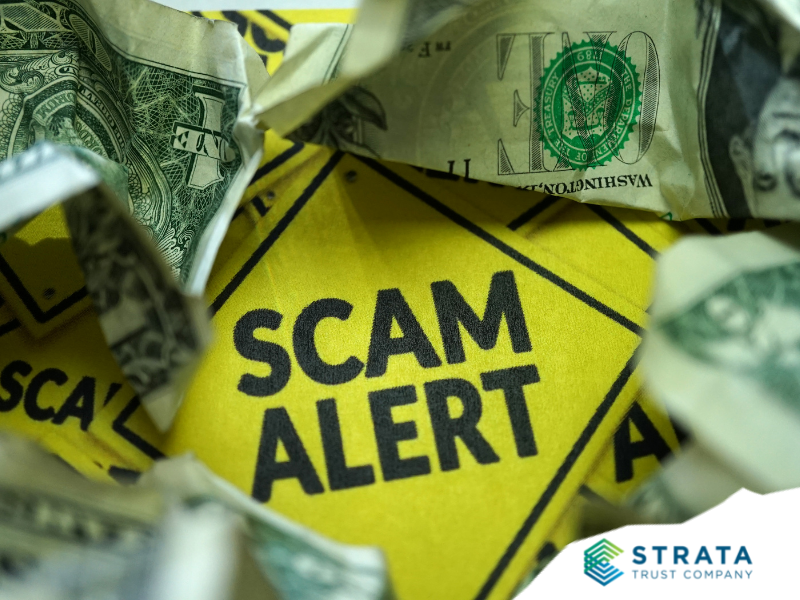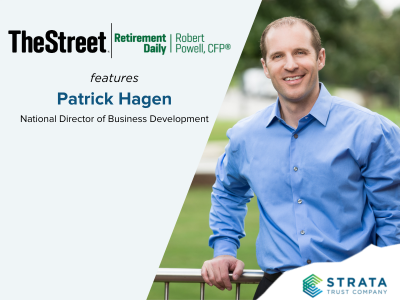Self-directed IRA investors have found success with unconventional investments that oftentimes are able to outperform conventional mutual fund returns. With higher-return potential comes a greater risk of not only loss, of course, but also of fraud. Some types of alternative investments, such as private equity, private debt, real estate, and crypto currency, can have an increased likelihood of being used in an investment scam — and so can educated investors.
Although many self-directed IRA owners are knowledgeable, experienced investors, they aren’t immune to fraud. Research has found that those with “higher levels of financial literacy have been associated with an increased probability of investment fraud victimization,” and that investment fraud victims tend to be college-educated, financially literate, optimistic men.1 Personal characteristics that often lead to being a victim of fraud include overconfidence, fear of missing out, and wanting to be on the cutting edge of an investment trend or strategy.

Recent scam alerts
Do-it-yourself investors must be aware of current fraud techniques to avoid falling prey to these clever financial scams. While most investors are aware of the Madoff Ponzi scheme and others publicized in the media over the years, not all investment fraudsters present like a Bernie Madoff. Today, investment scams come in the form of emails, webinars, testimonials, high tech presentations, impostor websites, and other seemingly credible sources. They may even be comingled with legitimate investments. The Securities and Exchange Commission (SEC) monitors investment activity across the U.S. and issues
scam alerts to help investors avoid potential scams. Here are two recent alerts:
Digital Asset and “Crypto” Investment Scams
The SEC warns investors to be wary of solicitations to invest in digital assets, crypto, and initial coin offerings (ICOs). The SEC recently brought charges in a $2 billion global Ponzi scheme that involved fraudsters convincing investors to lend their Bitcoin to BitConnect, which was disguised as a proprietary platform for trading Bitcoin. The scam was perpetrated through a paid network of promoters who marketed the lending platform through testimonial-style YouTube videos and other social media. The scam also allegedly rewarded investors for recruiting new investors in a pyramid-type structure.
Fraudsters Posing as Investment Advisers
The FBI and the SEC warn investors to beware of fraudsters pretending to be registered brokers or investment advisers. These individuals falsely claim to be registered with the SEC, FINRA, or a state securities regulator to lure investors into scams. Some even impersonate real investment professionals by misappropriating their name, likeness, and contact information. Tactics to solicit money include:
- Misrepresenting or falsifying documents to claim firm affiliation or registration
- Cold calls using teams of people claiming to be employees of registered firms and technology to make it appear they are calling from the firm
- Fake websites using URL addresses or names like those of registered firms or investment professionals
- Fake social media profiles
Red flags
Even the most experienced investors need to be cautious when considering an investment opportunity. Be skeptical and beware of these red flags of fraud:
- Guarantees or promises of high investment returns with little or no risk
- Sales pitches that focus on the quantity of people investing rather than the investment, or that stress the investment is only available for a limited time
- Investment accounts rapidly increasing in value and providing large returns
- Unsolicited offers from unknown senders
- Unlicensed, unregistered sellers
- Required payment methods by credit card, digital assets, or wire transfers payable directly to a person or a different firm

Do your research
Remember: if an investment sounds too good to be true, it probably is. As a self-directed investor, you are responsible for researching investment options before you invest. One of the best ways to do your homework is by asking questions. Always verify the identity of an investment promotor, whether they are licensed with FINRA, the SEC, or your state securities or insurance regulator, and whether the investment they are promoting is registered with the SEC or a state. Don’t rely solely on the information they provide you; confirm their answers by checking with the SEC or state securities regulator.
For a list of questions you should ask when considering an investment, see the SEC’s Questions You Should Ask About Your Investments.
Additional resources
- Investing and avoiding fraud
You can find tips on investing wisely and avoiding fraud on FINRA’s Investor Insights website, the SEC’s Investor.gov website and the FBI’s www.fbi.gov website. - SEC contact info
If you have questions, you can contact the SEC’s Office of Investor Education and Advocacy by phone at 1-800-732-0330, using this online form, or via email at [email protected]. - License or registration status check
To check if someone is currently licensed or registered, use the search tool on Investor.gov and/or the FINRA BrokerCheck tool. The SEC also maintains a list of Impersonators of Genuine Firms. - Familiarize yourself with popular online scams
Scam Spotter – test your knowledge and learn about the most common patterns used by scammers. - Spot impostor websites
Kaspersky explains more on how to identify fake websites and what to do if you think you have been scammed. - Spot a fake social account
Many times when a scammer is launching a fake website or company, they will quickly create a social profile for the scammer site.- Does the company have a social media presence? (Most companies do)
- Are they active and engaged?
- Do they have company photos or is it all stock images?
- How many followers do they have?
- How long has their social profile been active?
Reference:
1 Kieffer, Christine N., Mottola, Gary R., The Wharton School, University of Pennsylvania, Pension Research Council Working Paper, Understanding and Combating Investment Fraud, 2016, https://www.finrafoundation.org/sites/finrafoundation/files/understanding-combating-investment-fraud.pdf














